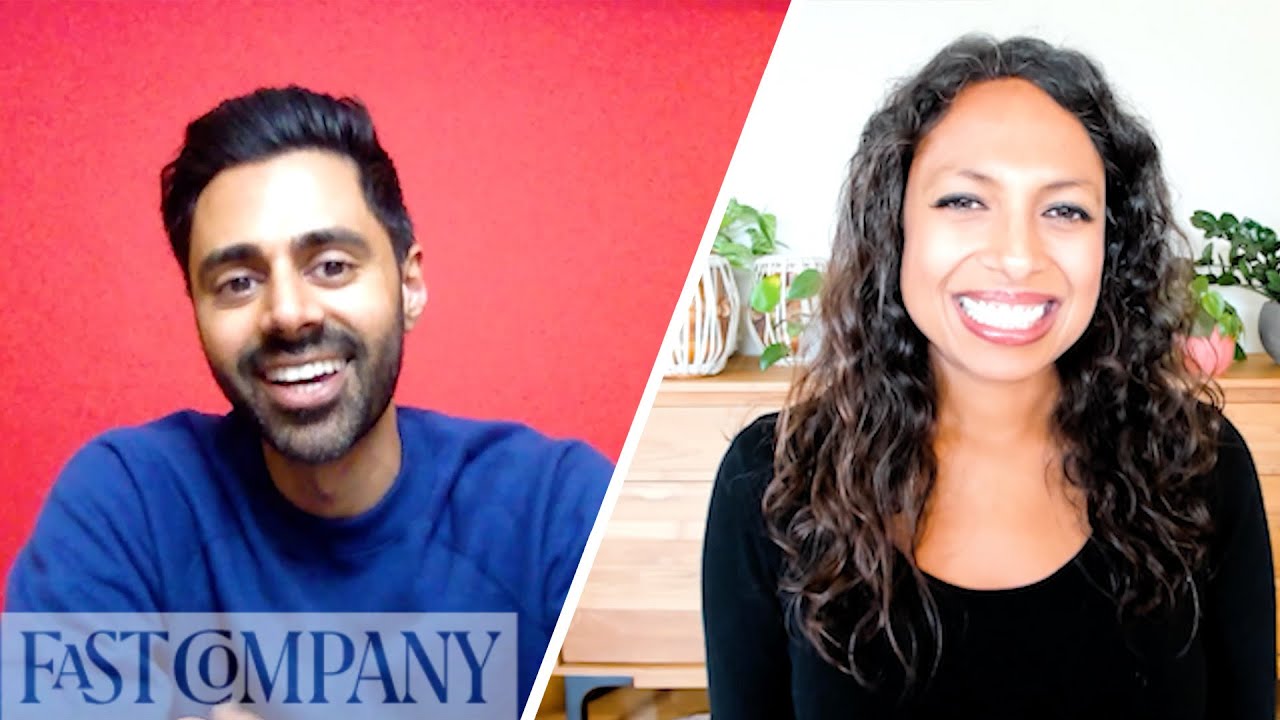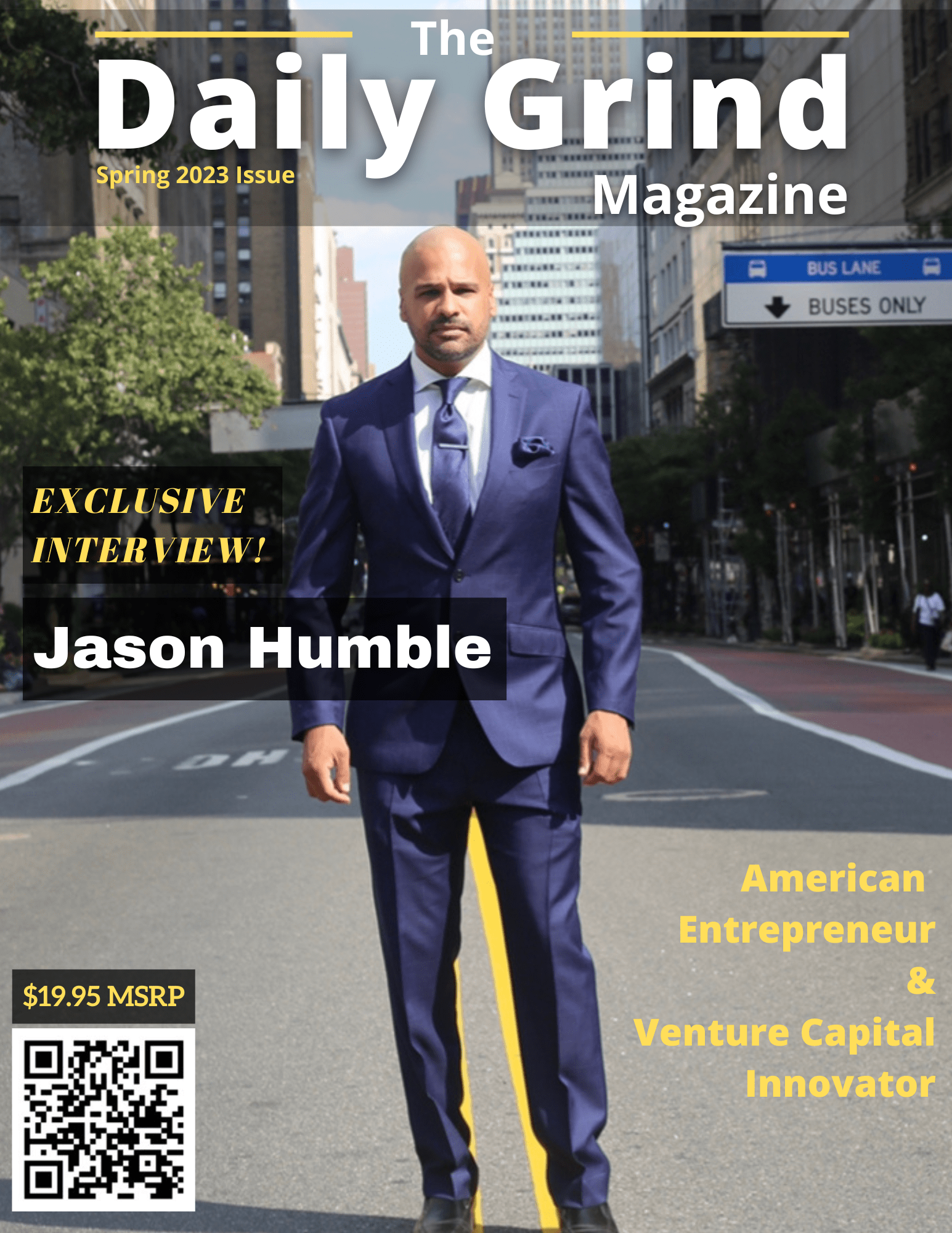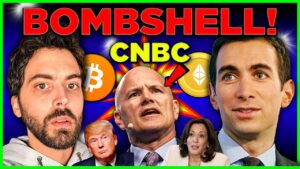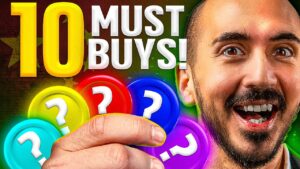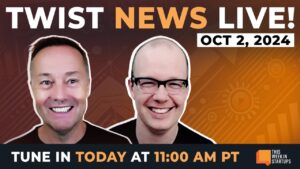– Anyways, The lesson that I learned from
that is don’t take yourself So seriously and you have
to embrace the cosmic joke. And I think, especially in our culture, We don’t take jokes well. We don’t laugh at ourselves. Everything is deemed as like
high status, low status, And actually removing
yourself from that game, I think is the most liberating thing ever. And that is one of the core
tenants of being an artist. You have to embrace the cosmic joke. We are all gonna to die. None of this matters. And you are one scroll
away from being forgotten. Which is a beautiful thing. It is actually a beautiful thing. (upbeat music) – I’m Prerna Gupta, a tech founder. And in this series, I’ll explore how
exceptional people succeed By following their hero’s journey. – Hi, Hasan, welcome to Hero’s Journey And thanks so much for joining. – Hi, thanks so much for having me. – So, I want to talk today about One of the most important
traits of a hero, courage. The courage to walk the less trodden path, To stand up for your beliefs And to speak the truth. Let’s start with the less trodden path. You are one of very few
Indian Americans to break out And have a successful career in comedy. This is rare amongst south
Asian immigrants like us Because we have so much
pressure from our parents
And our society to
conform to expectations, To become doctors, lawyers, engineers, And have certain career paths
that make a ton of money. What inspired you to
veer off this career path And pursue comedy? – Well, first of all, I
think there’s actually a lot Of really amazing south Asian artists. So I don’t want to say ’few’. There’s actually a big current
class of contemporaries. There’s a class that’s underneath me Of this next generation, That’s really, really talented. And then there was a
generation that came before me With a ton of really amazing
theater actors and performers And actors and actresses and comedians. So I just want to say that
there have been a lot. I think what is happening
right now is we’re, You’re right, I think we are gaining A little bit more mainstream credibility, But you would, with me specifically, The reason why I got into the arts is I have no other discernible skills. I’ve been fired from every
other job that I’ve had. I used to work at Safeway. If you’re familiar with, you
know, Northern California, If you shop at Safeway, I was
a courtesy clerk at Safeway. I got fired. I used to work at Office
Max selling printers. I got fired. I used to work in Silicon Valley. I used to work in tech and I got fired. I mean at the time, it was very painful. It was very humiliating. Especially my last job, my corporate job,
They walk you out, like,
they’ll have somebody from HR, Walk you out of the building. That way you don’t go postal. And then basically go to like A Pete’s Coffee and Tea across the street. And then they’ll give you your last check, Which was an oddly flattering
that they thought like, I would like start something, you know? – (Prerna laughs) So you took
all of that shame and rage And channeled that into a
successful career in comedy. – Totally, totally, I don’t
know what your story was. Every basic community has like the kids That are like top tier. They’re going to med school. Auntie and uncle are
flexing their SAT score. Then there’s kind of like
the bottom tier children. And those are kids that are
usually getting B, B pluses. I was right around there And what’s really beautiful about That is you can’t fall off the floor. So instead of trying to move this way, I just was like, all
right, I have no dignity. I might as well tell jokes in a basement. So yeah, that was that. Like, there really wasn’t
a whole lot for me to lose. It wasn’t like I was
turning down, you know, like A Stanford MBA program
or something like that. It was pretty easy. I was a
poly-sci major at UC Davis. There wasn’t a whole lot
that was like on the uptown. – Come on. (Prerna laughs) That’s pretty respectable. (Prerna laughs) – So for me it was that.
And then, you know, I just… In high school I was part of something Called forensic speech
and debate and FPLA, And my coach, Ms. Takeuchi,
shout out to Jan Takeuchi, Who is now retired from Davis High, She would catch me
basically being a smart alec In the back of class. She would give me detention. And then one of the ways out of detention Was if you actually compete
in academic decathlon Or FPLA and you compete in forensics, I’ll let you out of this. And it turns out I was
actually pretty good at it. And Ms. T was like, ’Hey, you have a talent
here. You have a skillset. So this actually something
maybe you could pursue.’ I just didn’t know that
society valued those things. – That’s beautiful. And it’s fascinating that that
was how you got into comedy, Because it seems like that’s
informed a lot of, you know, How you’ve approached,
what you talk about. And it’s really about taking
these very serious issues And making them funny. And by making them funny, Helping more people actually
pay attention and care. – You know if, The news and everything that
you see on social media, If you imagine that’s coffee, The core thing, what I was
trying to do in comedy, Whether it was the Daily Show, Patriot Act Or the White House Correspondence Dinner, Or the Congressional
Correspondence Center is Just distilling that to its core espresso. It’s like taking esoteric,
complicated information
And boiling it down to what
is the core visceral take Or feeling that people have. And ideally, I want people to be like, Oh man, I’ve always felt that way. Or I want them to be like, Oh wow, I never saw the world that way. And that’s so cool that you
encapsulated it that way, You know? – Yeah. Absolutely. So, well, you mentioned this, But in 2017 you were invited to speak At the White House Correspondents’ Dinner. This was the dinner where
Donald Trump didn’t show up. And it was a really scary time in America, Especially for brown people, But you were spectacular. You were bold and cutting And honest and hilarious. It brought me to tears. I still remember that performance. It was very cathartic, But it must’ve been scary though. Right? Like, did you have
a debate with yourself? Am I really going to get up
here and lay in to Trump? Like, what was your thought process? You know, I could go to jail like with, When you were trying to decide What to say in your speech, like, What did you think about And what made you decide to go for it? – I think it’s one of those
things where, you know, That opportunity came at a time in my life Where it really was like Rocky 1.
If you’ve ever seen Rocky 1,
it’s one of my favorite movies. But really all Rocky’s trying to do in it, He’s not even trying to beat Apollo Creed. Rocky is just trying to go the distance. You know, he keeps saying that I just want to go the distance. I just want to go 15 rounds
against Apollo Creed. And so at the time,
just to give you, like, Give the audience a little
bit perspective here, I wasn’t their first choice. They ended up going to James Cordon And a couple other people, first. I think they went up to James Cordon, Kevin Spacey at the time (Hasan laughs) Which is really funny,
now, thinking about it. And then me, so when I got the call, It actually felt like a prank Cos I was like, Yeah, you’re calling like the fifth Most famous correspondent
on the Daily Show. Like you’re not even calling the host. So how many people said
no before you called me? And it was one of those things where A bunch of people around me, you know, At the time, you know, There was a lot of press that
was boycotting the event. A lot of people were
boycotting and not attending. It was a very contentious time in America Where the White House Really was in a contentious
situation with the press. They were, they were not on
good terms with one another. And they had a very, very, I mean, Icy is an understatement, But they had a very icy relationship.
Now for me, I felt like, Hey man, this is all upside. Nobody really knows who you are. Like, you’re going to get up there, And people are going to
be like, wait, wait, wait, Why didn’t they invite John Oliver? Or like, wait, what what’s going on? Like a Fareed Zakaria
looks 30 years younger. Like I knew everyone was
going to just be like, Who is this person? And again, it just goes
back to my Safeway days. It goes back stuff back
to my Office Max days. I’m like, you cannot fall off the floor. So don’t take yourself too seriously. See this, again, As a … As a positive opportunity Where there’s infinite upside, Rather than looking at it
as an opportunity where, Oh, there’s so much I could lose. And I think a lot of
times in our community, We have, in Hindi, we call
it, darpok, scaredy-cat. I think a lot of times in our community, We have darpok energy, scaredy-cat energy In traversing, the new. So we’re not scared of the MCAT. We’re not scared of the GMAT. We’re not scared of Kumon or Kaplan, Even though they’re
horrifying places to be, But we’re scared of like, Hypothetically running for class president Or dedicating your life to ballet, Or, you know, opening a pottery shop, Whatever those things are that
Where we don’t see ourselves
in that experience, All of a sudden those things
become incredibly scary. And I just, I didn’t, I
never framed it that way. I framed it, like, You’ve already been through
so many humiliating, Embarrassing things in your life. There’s no way this could be any anymore. And after a few minutes,
once I was on stage, To me, the big win wasn’t
whether or not people Were going to like the speech, Is the challenge I gave myself was, Am I going to be proud of the material And of what I’m saying,
five years from now? And I want to be able to look
back at the YouTube clip, Or I want to be able to look
back at that performance And just be proud of
the things that I said. – All right. So I want to step back for a moment And learn a bit about your childhood. Take us back to when you were growing up As a first-generation Indian Muslim kid In Davis, California. What was it about that experience
that gave you the courage To speak truth to power And to focus your comedy on social issues? – I, ah, okay. So I think I gotta, we gotta reframe this. There’s no, It’s not courageous, Like telling jokes on
stage is not courageous. I think, you know, just as a kid, I was like every other
Indian guy, you know, I had aspirations of,
you know, making the MBA And being a rapper
And thank God, neither
of those worked out. And,
(Prerna laughs) – and yeah, like I think
just that at an early age, Like you kind of find out what you can do And what you can’t do. And I think the best thing
that ever happened to me was, Again, Ms. Takeuchi,
my high school teacher, My sophomore year of high school Showing me that I have a gift. And ultimately I owe Ms. Takeuchi a lot Because she was the first
person that introduced me To the idea of possibility And so much, I think of
being a creative person Or being an entrepreneur is understanding And being excited by possibility. Doing things that
haven’t been done before. And I think a lot of times, Art becomes stagnant when
you’re just trying to remix, What already exists. All the exciting stuff starts to happen, Once you start to delve into
the deep end of the pool, Where nobody’s really
traversed into that territory And, you know, shout out to Ms. T For teaching me about what’s possible. – Yeah. Awesome. Well, I will disagree
with you on one point. I do think it’s incredibly courageous To get up on stage and tell jokes. I think it’s one of the
hardest things to do Because making people laugh is hard. You have to make yourself vulnerable. You’re probably telling, in the beginning, A lot of jokes that fall flat. So, coming from the perspective
Of someone who’s not funny at all, I think it’s one of the
most courageous things You can do as a human. (Prerna laughs) – No, no, no. Think of it this way. Let’s just do, Let’s just create a scene. You’re going in. You’re going into a16z To pitch your next app. Ooh
– (Prerna laughs) And Mark Andreessen and Ben
Horowitz are looking at you. What do you do? I mean,
it’s the same thing. It’s just like,
– (Prerna laughs) At the end of the day,
you have to be like, They’re just people. This is what I believe. These are my ideas. And I think coming to terms with pitching Or performing or singing or dancing Or you know, living a life on your terms And being like, I’m just
going to empty the tank And say what I really feel from here. To me, like, that’s what
it means to be an artist And to me, it’s what
it means to live, like, Just a fulfilled life. – Yeah. So I relate a lot to
what you’re talking about. I think also, you know,
as an entrepreneur, You make a similar decision
early in your career, you know, Most entrepreneurs fail,
most startups fail. And so when you’re
going into it, you know, That your chances of making as much money As your peers are making, The ones that are going
on to business school
And going to work in
finance or whatever are low. And, but you do it because
that’s what you want to do. And that’s the life you want to pursue. And then you start to get some success And you start to feel
that that yoke kind of, You know, come around you again. So it’s like, do you feel, I mean, You launched your career with that. Okay. I have a certain price. And as long as I have enough
money, I’m going to be fine. I’m going to follow this path,
but you’re successful now. – This was the price. The price was, and hey, whoever’s
in post-production, like, Make sure you animate
this and make this… Let’s just queue up
(emotional piano music) The emotional music. Just give me a 16 by nine
(Prerna laughs) Frame me up and like, And really do something with
like piano underneath it. Here was my, My price was If I could order extra guac on my burrito At Chipotle without thinking about it, I officially made it. And in November of 2014, I walked into Chipotle In Times Square Cos I lived near Times
Square, which was really sad. I walked into Chipotle and
they said, guac is extra. And I said, don’t (beep) worry about it, (Prerna laughs) I got this. And I made it. – Oh so, alright. So then you hit that.
So you could afford the extra guac And now you can afford way more than that. You’re super successful. You’re famous. You’re rich. – I drive a Honda Odyssey,
black minivan, leather interior. Do I own it? No. Did I lease? Yes. – Okay. No, but seriously, like, do you feel like, Do you still feel free like that? Or do you feel like, you
know, success can be a curse. Like, do you feel like, okay, I need more now. I do need to be richer. I do need to be more famous. You know? Do you feel yourself
getting sucked back in Or are you still just doing
it for the sake of doing it Cos you really want to, cos it’s your gift And you want to go, you
know, tell these messages. – I think the only element now. So, When I was single, The calculations were
a little bit different. And now I’m married, I have two kids. I have a three-year-old
and I have a one-year-old. So the math is a little bit different Because Now there’s three different people That are counting on me. Like my daughter’s counting on me. My son is counting on me. My wife loves me, but I
don’t know if she needs me. But she does love me.
I do know she loves me. But there’s three people
in my life that definitely, You know, I’m a part of their life
And they are counting on me. And so for me, the biggest thing has been Just breaking up two things, Like figuring out what
our needs are going to be. My daughter’s three, my son is one Like what that window
looks like to, you know, Help give them, you know, A really beautiful, lovely childhood, And then the other bucket as well, While I’m accomplishing that, Create space so that I can say and do the things That I want on stage. And I cannot tell you,
there is a liberation And just driving a Honda Odyssey Because I don’t need to pursue gigs Or do things to maintain a lifestyle That doesn’t allow me
to be creatively free. So to me, like real freedom, real artistry Is in freedom of thought
and freedom of expression. And so for me that the whole game is Do everything that you
can to create that space. So you can, you know, be free, Be free to say whatever you want on stage And be really authentic. – Very well said. So, you know, okay. Kind of on that theme of, you know, What do you want to say on stage? A lot of your comedy
to date has focused on Many of the things
we’ve been talking about Your experiences as
first-generation Indian, Muslim American, and that’s really, You know, you found an avid fan base,
You know, by speaking of those things. And we, it was… Many of us really related to it. And it was cathartic for many of us. Now that you are, you
know, more prominent, Like, do you feel an obligation To continue talking about those issues? And do you ever feel like This kind of, you know, Character that you’ve defined for yourself Limits what you can talk about And the direction that
you can take your comedy. – That’s really interesting, you know. I think one of the things, you know, That you mentioned is, The more you establish
yourself in your career, One of the beautiful
things is like you said, More people recognize you. They recognize you for certain things. And then what comes with
that is certain expectations. I think for me, It’s trying to break yourself
from that feedback loop of, Oh, people expect this of
me, so I should do this And try to understand what, you know, Got you into this game
to begin with, which was, There’s something burning inside of me That I need to say on stage. There’s something that
I want to talk about. There’s something that I really
feel people need to hear. And I think that was one of the big themes Of Homecoming King. You know, I had a Netflix
special called Homecoming King. One of the big themes for
the three acts of that show Is this phrase,
’look y’all can get, but
what will people think?’ And, you know, I talk about what will
people think, in act one, In regards to my marriage. What will people think,
in act two, or act three In regards to the storyteller
about going to prom, you know, And what will people think
in regards to, you know, The final story that I
tell about, you know, Going and auditioning for the Daily Show. That was something that I felt like I needed to say at that time, in 2017. The new show that I’m working on, That I’m on tour that
we’re doing right now Has a bunch of different themes Because they’re talking about
where I’m at in my life now. And so for me, that’s what
I’m most interested in. I know people are expecting me to, Hey, it should be like this. Like, I want it. I want you
to do it like a PowerPoint, Ted Talk comedy show where
I learned something like, I want to learn about insulin
pricing, but in a funny way, I’m more interested in, again, There’s gotta be something within me, A deep kind of philosophical
or artistic question That I’m trying to answer. And then through the art itself, I go out and I put that
out into the world. And what I’ve been trying to do, And I’m sure you do this
as an entrepreneur is I’m less concerned about,
”product market fit”, I’m more concerned about, Does this feel authentic and honest to me And what I found, time and time again, Is people resonate with that.
Just being real, Cause I think there’s two
versions of ourselves. There’s who we are on Instagram And there’s who we are on iMessage. (Prerna chuckles) And I’m just trying to close that gap Cause if I followed you on Instagram, You’re probably out here, You’re talking about climate
change and recycling, But if I looked at your
iMessage with your sister, I bet you it’s wild. And like that’s who you are. And to close that gap, I think, You know, we live in this society Of digital disillusionment and screens. Like everything is just a
projection of who we are. And, you know, one of my
favorite things as an artist, Whether I’m on set or on
stage is to ground myself In that moment and just be real. And, Hopefully I can continue doing
that for the rest of my life. – As a comedian, you’re
always skating the line Between presenting controversial
thought provoking topics And saying something
offensive to somebody. How does, you know, You’re talking a lot about Kind of digital media and disillusionment, A big thing that’s come up In the last few years is cancel culture, Where you can say something That you think is thought provoking, But someone, somewhere
gets extremely offended And you’re done. How does cancel culture impact
What you choose to say and write? And are you ever afraid
of saying something wrong? – Totally. So I think there’s two things that I’d love to, you know, talk
about in regards to this topic. I think, you know, One of the most amazing
things about the internet is That it connected all of us in real time. And that was a beautiful gift. And now because of social media platforms And our ability to talk to each other All the time about anything, Um… There has not been Healthy places Of discussion, dialogue, and discourse. So, if you look at the
algorithms on Instagram, On Twitter or on Facebook, The algorithm, and specifically, I think, The quote tweet feature,
have incentivized, Arguing, disagreeing with people, Shit posting other people. And you’re given like,
thumbs up, likes, retweets And clout for that. That’s great. That’s great for engagement, But that’s not great for resolution. It’s not great for growth. That’s not great for any of those things. And I think, what we all feel, There’s this existential
fear that we all feel is We’re all growing, evolving
versions of ourselves. You know, I’m Hasan Minhaj
rough draft dot PDF, But when we’re on the internet, It’s, Hasan Minhaj final dot PDF.
And that disconnect
between rough-draft-self, Always being judged as final-draft-self Is a real problem. Like that’s, I think
that’s a very scary thing. And I’m genuinely scared for my children Because when I look at my three-year-old And I look at my one-year-old, They’re a rough draft,
they’re a rough draft. But then when I look at
myself and I look at Bina, Were both rough drafts as well. Like by no means, do I consider myself To be a complete person
that’s figured it all out. And so, I don’t think
digital media platforms That are reductive in nature, I mean, that’s this podcast, This interview is also super reductive. The editor’s going to be
in the edit right now. He’s going to cut this out
cause it’s not a sound bite. That’s not a good thing. It’s like ultimately not
a good thing for society. So what I try to do is in my art is, Okay, that’s a problem now
I can’t solve that problem. What can I do? Where do I have agency? That’s what goes to number two. For me, Where I have agency is Find spaces where you have
both contexts and trust. So, when sometimes people ask me, Hey, you should tweet about this. I’m like, I actually think this issue Or this topic, cannot be summarized In, you know, 280 characters or less. This actually deserves 30
minutes, 60 minutes or six hours.
And what I try to do is find places Where I can talk about
those issues within context, And there’s a trust with the audience. So one of the most beautiful things That I love most about the stage is In a 75 minute show, And my show is a lot of storytelling, I can tell you a personal
story or personal experience, And you’ll understand it within context, And you trust me, as an audience member, Where you’re like, ’no, I trust Hasan, I’m here to watch his show And I’m here to watch him
tell me about an experience That he had in a funny way’. And I think, if we understand
each other within context, And there’s a level of trust, Not only, you know, I
trust you, you trust me. I think that that’ll probably
lead to a healthier society Where again, resolution And you know, is an option going forward. – I couldn’t agree more. So let’s talk about what’s
coming up next for you. You’re working with some huge names, Jennifer Aniston and Reese Witherspoon, And you’re going on tour again, Which I believe is sold out. Congratulations. – Oh thanks. Yeah. Yeah. So, you know, doing season
two of the Morning Show That debuts September 17th on Apple. It’s an amazing show. Incredible cast, Reese Witherspoon, Jennifer Aniston, Billy Crudup.
Everybody on that show’s amazing. Mark Duplass, he’s incredible. Everybody on that show is
really, really fantastic. And just shout out to
Mimi Leder and the entire And Kerry Ehrin, the entire staff and crew And the directors and the writers, Everybody out there. They did an incredible job. And what I love most about the show is, Again, it’s a stretch for me. I’ve spent, you know, the past
seven years of my life being A fake TV anchor. And now I get to be a fake TV anchor On a really expensive one hour drama. So it’s familiar enough, But really new for me in the sense that I get to play in a space
where it’s really dramatic. And, and it’s really exciting. And, at times Just a really, really fun
experience to do something new, But it still had a
level of comfort for me. And then I’m also going on tour, The King’s Jester tour, Starting September 17th. And we’re going to tour north America And then shoot the special And that’ll be really exciting, too. – Awesome. Very excited for that. Okay. So now we have our rapid
fire Heroes Journey wrap-up Four questions. – [Hasan] Yes. – Question one. What’s your
favorite book about a hero? It can be fiction or nonfiction.
– Hmm, can it be a movie? – [Prerna] Yes. Movies count. – All right. Let’s do movie. I would say one of my favorite movies, I’ll give you three movies
that like defined like my life. I would say the Lion king, Not the new one. I’m talking about the
original animated Lion King. Second, would be Home Alone 1. And then, the third would be the Sandlot. Two of them are about a hero’s journey. And I think the third is about friendship, Which I is really cool. – The classics. And I loved
all three of those as well. Awesome.
– [Hasan] Great. All right. Question two. What’s your super food? – What’s my super food? Almond butter and bananas. – Yum. Cool. All right. Question three. What’s your kryptonite? – My kryptonite is chocolate chip cookies. If there’s chocolate chip
cookies, it’s a problem, Especially for fresh baked
chocolate chip cookies, Specifically from Gramercy
Tavern in New York City, Gramercy Tavern, you should plug me Cos I’m plugging you, right now. Those are really, really great. They have this really great
cookie basket, that’s fantastic. And then I would say
another social kryptonite is If I’m in a green room Or if I’m hanging out with
other friends and comedians And I’m supposed to come
home around like 11, I may just like banter and chop it up
Until like 1, 2, 3 o’clock in the morning. Like I’m not joking. – Nice. And finally, what’s your secret weapon? – What is my secret weapon? Collaboration, right. Great collaborators. Yeah, I have an amazing team
of people that I work with And people that I trust That um Really helped me identify
what my weak points are And then what my strengths are. And so much, I think of joke
writing and storytelling Is just problem solving And making adjustments within each draft. It’s just chipping away. – Beautiful. Awesome. Hasan Minhaj, thank you
so much for joining. It was such a pleasure to speak with you. Thank you for your wisdom
and good luck with your tour And all the other amazing
things you have coming up. – Thank you. As someone in Silicon Valley, Do you think if I delivered
my pitches this way, Would I get funded? – (Prerna laughs) Yes…
